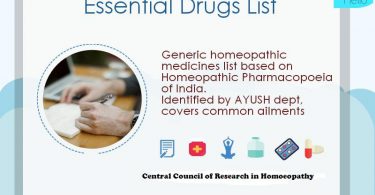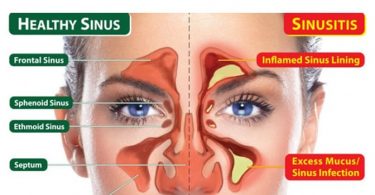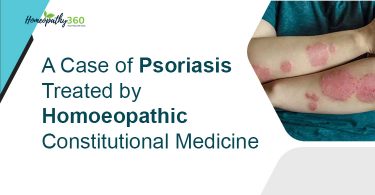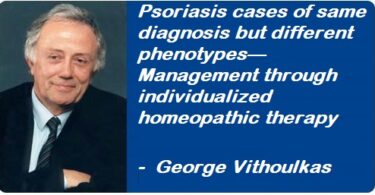[Authored by Dr ANKITA SHARMA, BHMS, INTEGRATED MEDICINE EXPERT]
Personalized medicine is a medical model which emphasizes on individuality of patients in terms of their relative risk factors for diseases, diagnostic differences and management protocols.
Every person has its own unique genetic sequence but it is not just the difference in genetic sequence which creates difference in individual response for environmental factors and management. It also depends on the epigenetic variations. This forms the basis of precision medicine.
A total of 56 million deaths occurred worldwide during 2012. Of these, 38 million were due to non-communicable diseases, principally cardiovascular diseases, cancer and chronic respiratory diseases. The impact of chronic diseases on the lives of people is serious when measured in terms of loss of life, disablement, family hardship and poverty, and economic loss to the country. Developing countries are now warned to take appropriate steps to avoid the “epidemics” of non-communicable diseases likely to come with socio-economic and health developments. [1]
Most chronic diseases are the result of multiple causes-rarely is there a simple one-to-one cause-effect relationship. Chronic diseases appear to result from the cumulative effects of multiple risk factors; these factors may be both environmental and behavioural, or constitutional. [1]
In a multifactorial event, therefore, individual factors are by no means all of equal weight. Each disease has its own unique natural history, which is not necessarily the same in all individuals; so much so, any general formulation of the natural history of disease is necessarily arbitrary. [1] Complexity of these chronic disorders makes them the grey areas of medical science where patient and healthcare provider both suffer from uncertainity.
Present knowledge indicates that the chronically ill require a wide spectrum of services- case finding through screening and health examination techniques; application of improved methods of diagnosis, treatment and rehabilitation; control of food, water and air pollution; reducing accidents; influencing patterns of human behavior and life-styles through intensive education; upgrading standards of institutional care and applying better methods of comprehensive medical care. The approach should be holistic in handling the complex medical and social needs of the chronically ill. [1]
So, medical science is progressing towards a world where patient management cannot be generalized and based on single intervention. There is a need for multifaceted precise approach to deal with individual patient.
HOMOEOPATHIC PERSPECTIVE:
The trend of Homoeopathic practice is to individualize, to view and treat each patient as a person suffering under and from particular conditions. [2] Concept of susceptibility is in the core of homoeopathic perspective of health, disease and cure. All functioning, all vital processes, physiological and pathological depend on susceptibility. Digestion, assimilation, nutrition, repair, secretion, excretion, metabolism and catabolism, as well as all disease processes arising from infection or contagion depend upon the power of the organism to react to specific stimuli.[3]Here, “specific stimuli” refers to the individual causative factors of disease which differ from person to person. Every individual has its distinct susceptibility thatswhy even same morbific stimuli do not possess the power to affect everyone in the same manner. The science of medicine should not overwhelm the art of medicine as generalizations of science can not be applied on humans.
Any symptom is produced by the disturbance of vital force. This disturbance can be due to wide variety of reasons, which many times are not identifiable by general history taking, physical examination, investigations and medical imaging which all may be apparently normal. Trying to go beyond the conventional medicine for identifying these factors may lead to the root cause of disturbance in the vital force. The vital force is likely to be autonomic nervous system and body hormones which have subtle interplay affecting the internal milieu and producing symptom.
Hahnemann wanted to stem the tide of rapidly increasing specialization and tried to swing the pendulum from the coldly scientific approach represented by this increased degree of specialization and fragmentation of the doctor-patient relationship to an integrative approach to the sick person as being in the state of mental, moral and physiological imbalance with his environments inward and outward. [2]
CHALLENGE AND SCOPE:
Integrative and precision medicine is still in its primitive form. Research is needed to develop these fields upto a level where it would lead to new insights regarding health and disease.
Randomized controlled trials are considered the gold standard research design for the assessment of any medical intervention. But in case of personalized and integrative approach these types of study designs can not be applied.
Furthermore, it needs huge data and active participation on the part of patient to establish a cause and effect linkage.
Interpretation of such enormous data is not possible without the help of artificial intelligence.
Medicine has paved its way from the era of miasma theory to the era of robotic therapies. With emerging advances in the field of artificial intelligence there is a hope for cutting edge medical model to solve the intriguing problems faced by the medical fraternity. As artificial intelligence is entirely different field from medical science, it would take immense hard-work and team efforts on the part of doctors as well as artificial intelligence experts to combine both fields for the welfare of humanity.
The current approaches to intellectual property rights, reimbursement policies, patient privacy, data biases and confidentiality as well as regulatory oversight will have to be redefined and reconstructed to accommodate the changes personalized medicine will bring to healthcare. [4]
Integrative healthcare (incorporating diet and nutrition, physiotherapy, psychotherapy, relaxation techniques and medicinal management etc.) needs to be improvising due to increasing healthcare burden of multifactorial chronic diseases.
Personalized and integrative medicine may provide better risk stratification, diagnostic protocols, targeted therapies and predictive models for individual patient. It will also reduce the cost of treatment by eliminating ineffective treatment plans at outset based on data insights.
REFERENCES:
- PREVENTIVE AND SOCIAL MEDICINE (24th ed.). (2017). M/s BANARSIDAS BHANOT.
- HAHNEMANN’S ORGANON OF MEDICINE (14th ed.). (2013–2014). BIRLA PUBLICATIONS PVT. LTD.
- THE GENIUS OF HOMOEOPATHY. (2015). B.JAIN.PUBLISHERS (P) LTD.
- “PERSONALIZED MEDICINE 101: THE CHALLENGES”. PERSONALIZED MEDICINE COALITION.





